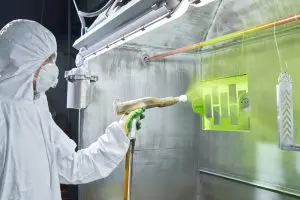It is widely known and agreed that die casting aluminium is one of the most economical and environmentally friendly ways to make metal components. However, for the best possible outcome and quality of parts produced, you must decide which aluminium alloy is best suited for your project’s needs. To help you understand your aluminium alloy options, we have provided information on some of the more commonly used aluminium alloys in the industry.
Table of Contents
ADC 10/A380 Aluminium Alloy
The ADC 10 or A380 is the most widely used and popular Aluminium alloy as it has strong mechanical and physical properties required for aluminium die casting. Some of its properties include high resistance to corrosion and its ability to withstand high temperatures. In terms of dimensional stability, should a project require thin walls and complex near net shapes for its parts, the ADC 10/A380 Aluminium alloy is able to retain its casted geometry. The ADC 10/A380 Aluminium alloy is also a good thermal and electrical conductor.
ADC 3/A360 Aluminium Alloy
In terms of properties, the ADC 3/A360 Aluminium alloy offers excellent ductility, is great at withstanding higher temperatures, and has a high resistance to corrosion. However its these very same properties that makes the ADC 3/A360 Aluminium alloy harder to cast when compared to the ADC 10/A380 Aluminium alloy. This is why it is not as favoured. All things considered, the ADC 3/A360 should be considered by virtue of its properties as well as your requirements.
ADC 12/A383 Aluminium Alloy
The ADC 12 or A383 Aluminium Alloy is another widely used option favoured by die casters. Should there be intricate parts that need the precise characteristics of die-filling, the ADC 12/A383 is the most sought after Aluminium alloy for the job. With regards to its properties, the ADC 12/A383 Aluminium alloy still retains strength at very high temperatures, and has great fluidity when molten. It is also highly resistant to corrosion.
ADC 1/A413 Aluminium Alloy
The ADC 1 or A413 Aluminium alloy offers a good range of properties. As a die casting material, it is light in weight, has excellent fluidity and pressure tightness, and is resistant to hot cracking. This Aluminium alloy is used to cast intricate components. When compared against the ADC 12/A383 Aluminium alloy, the ADC 1/A413 has greater resistance to high pressure. The only drawback in using this Aluminium alloy is that it has a higher rate of impurities as compared to the other Aluminium alloys listed here.
A360 vs. A380 vs. A383 vs. A413
To summarise the differences between the four Aluminium alloys that are used for precision die casting, the ADC 3 or A360 Aluminium alloy has the best high-temperature strength, pressure tightness, and corrosion resistance of the four Aluminium alloys.
If budget is a consideration, the ADC 10 or A380 would be a better choice. Just like the ADC 3/A360, it is also highly resistant to corrosion, but is easier to work with than ADC 3/A360. For projects that do not require the highest levels of corrosion resistance or pressure tightness, choose ADC 10/A380.
Last but not the least, ADC 12 or A383 is a modified A380 Aluminium alloy that die casting manufacturers would use if the need for precise die-filling arises.
Choose EKO for Your Die Casting Needs
It is never easy to figure out which Aluminium alloy is the correct fit for your project’s parts. But when you call EKO Industries and ask about metal parts die casting, you’ll get to work with materials experts who have been in the business for over 20 years. With our expertise and experience, we can determine what is ideal for your project’s needs. Contact us to find out more about our die casting process or some of our other manufacturing capabilities today.



